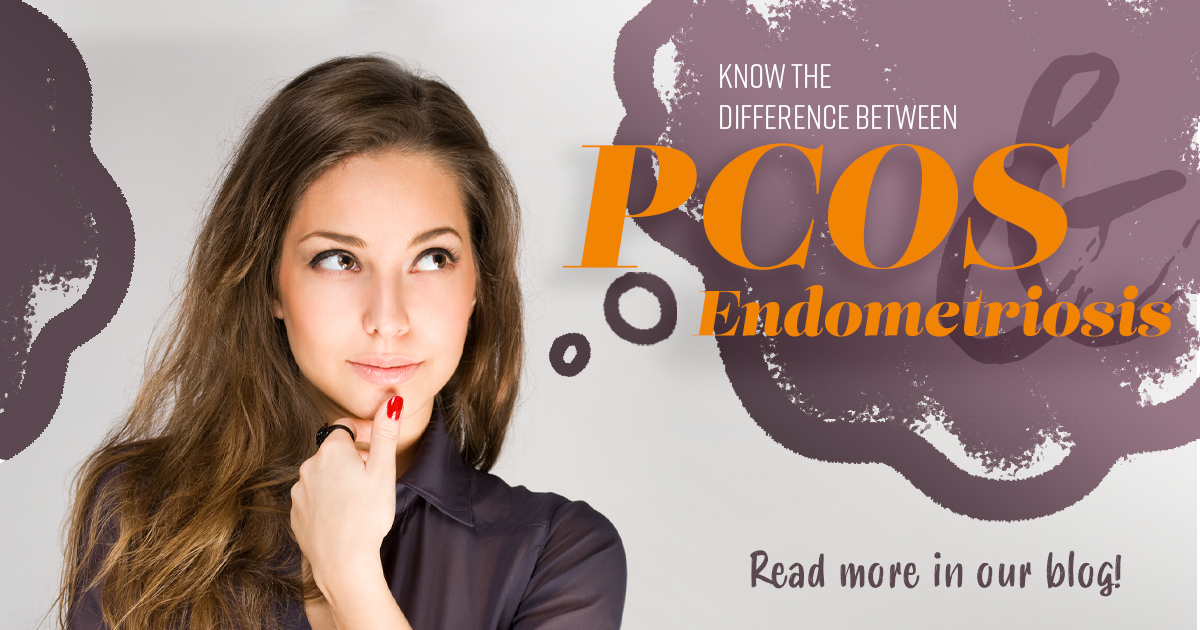Endometriosis and polycystic ovary syndrome (PCOS) have two very different names, but they share some similarities. Each can be difficult to diagnose and affect 5-10% of women of childbearing age. While both conditions can result in irregular bleeding, they are very different conditions and, it is essential if you have any of the symptoms, you get checked out.
Endometriosis

Endometriosis is a condition where the type of tissue that forms in the lining of the uterus (endometrium) grows outside of it. Because there is no way for the tissue to leave the body (as it does in the uterus), it becomes trapped in the pelvis and abdomen. This causes scarring and lesions to occur. The most common symptom is pelvic pain that occurs before or during the menstrual period. Depending on where the endometriosis is located, those diagnosed can also experience pain during the following: bowel movement, sex, and urination. Heavy or irregular menstrual bleeding is another symptom.
PCOS

Polycystic ovary syndrome, or PCOS, is a hormonal condition where women may have sporadic or extended menstrual periods. They also may have excess male hormone (testosterone) levels. Symptoms may start around the onset of the first menstrual cycle. Aside from infrequent and more prolonged menstrual cycles, the excess androgen levels produce excess facial and body hair. If the ovaries are enlarged and contain follicles, they may fail to function correctly.
Factors that may play a role in developing PCOS are having extra insulin, heredity and being obese.
Clinical Research and Better Treatment Options
Both conditions can be challenging to live with, but available treatments and advancements being made through clinical research are making it more manageable. If you are experiencing any symptoms of endometriosis or PCOS, talk to your gynecologist. These conditions are treatable, and you don’t have to “live with it.”
To learn more about clinical research options currently enrolling now through Seattle Clinical Research Center, call (206) 522-3330, or click here.
References:
https://www.acog.org/Patients/FAQs/Endometriosis
https://www.mayoclinic.org/diseases-conditions/endometriosis/symptoms-causes/syc-20354656
https://www.mayoclinic.org/diseases-conditions/pcos/symptoms-causes/syc-20353439
https://www.acog.org/Patients/FAQs/Polycystic-Ovary-Syndrome-PCOS


